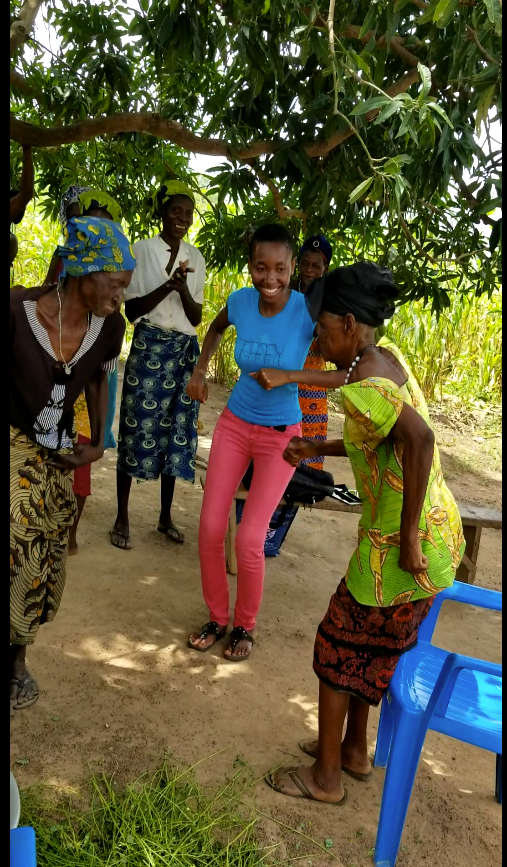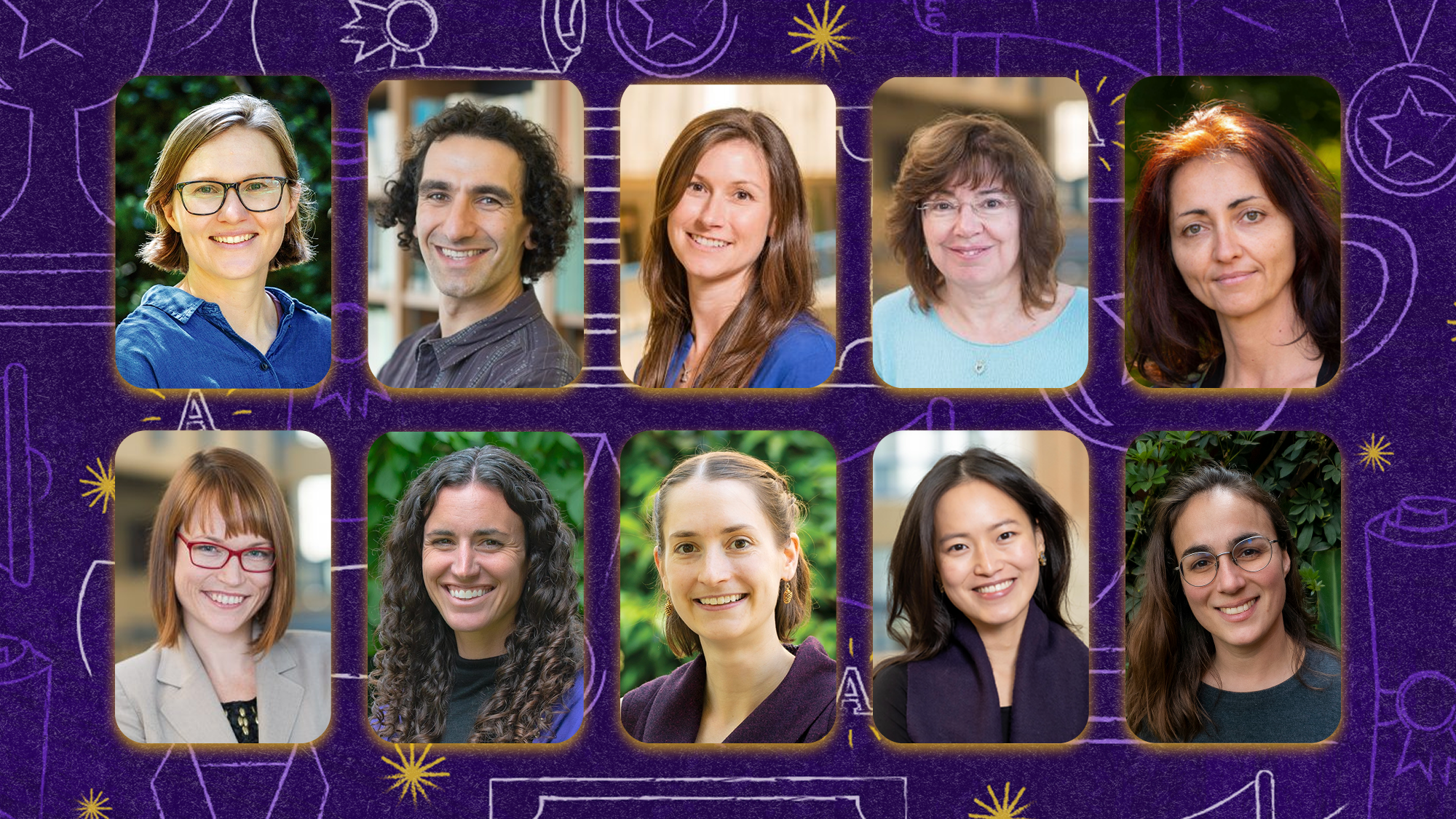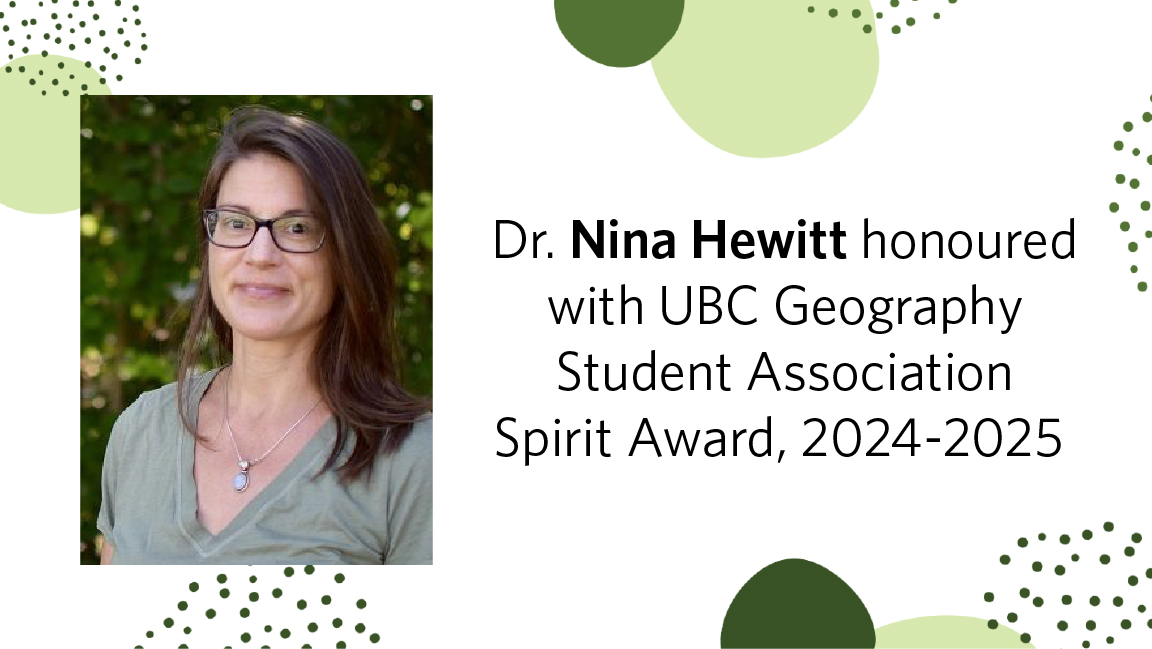

Dr. Jemima Baada joins UBC Geography as Assistant Professor of Climate Change and Human Migration in September 2022.
She will be teaching GEOG 353 Geographies of Migration and Settlement in Term 1 and GEOG 419 Research in Environmental Geography in Term 2.
What is your academic background, and what made you gravitate towards geography as a discipline?
I consider myself a wanderer, academically! I got my bachelor’s in sociology, my masters in geography and now I’m completing my PhD in the Department of Gender, Sexuality, and Women’s Studies at Western University. So three different disciplines for all of my degrees.
But I think I’ve always gravitated towards geography because of its interdisciplinary nature. I tend to have many interests, and I feel that geography as a discipline affords me the opportunity to pursue all of them.
Some of the most influential people in my life have been educators – including my own parents – so I chose academia because I believe that being an educator is one of the best ways I can help to make a difference in people’s lives.
What are your current research interests?
My current interests are in the areas of gender, climate-migration, development and health. When I started my masters, I was interested in studying migration because I am a migrant myself. I migrated internally within Ghana, and then I emigrated internationally to Canada.
Growing up in Ghana, I observed that my home was often used as a transit point. We had many extended family and friends who would travel from the Upper West region where I come from – one of the most marginalised regions in the country – to stay with us before they moved on to their destination areas.
I noticed that most of the people who were migrating were younger, and they tended to be men. So I asked myself what was influencing this, and why so many people were moving away from our home region.
I eventually got to know that it was mainly rooted in economic deprivation, but I was interested in exploring whether there were other reasons. I was also interested in the gender aspect, because I’ve always been really passionate about issues affecting women and other marginalised groups.
Then, while collecting the data for my masters, a central theme emerged – which was that many people were moving as a result of climate change. Growing up, I knew that farming conditions in the Upper West region were deteriorating by the day, but I don’t think I was really exposed to the relationship between these declining environmental conditions and climate change.
So for my PhD, I decided to continue in migration research. But this time I made climate change a focus.
Has there been been a delayed reaction in people asking these climate-specific questions as they relate to gender?
Definitely. Though I am grateful that people are now asking these questions. There are very real gender differences in experiences of climate change, and that just makes it even more concerning that so little has been done to study them.
In my own research; broadly, everyone is experiencing the same vulnerabilities. But the ability to cope with these climate change effects is very gendered.
I work with rural populations, and many of them depend on farming for their livelihoods. We know that globally, and in Ghana, women perform a significant proportion of agricultural work. But they are not given credit for being farmers. As a result, many women farmers would often describe themselves as helpers.
Consequently, because women tend to have few agricultural rights and control so few resources, they don’t get a say in how to use the little that is reaped from the already poor farm production. So that’s one way that gender affects people’s experiences of climate change; livelihoods, food, and just basic survival.
Another is that many people are relying on migration as a coping strategy towards climate change effects. And even though we’ve seen some change in gender and social norms, the migration of men in the Upper West still tends to be encouraged compared to the migration of women.
So everyone affected by climate change is experiencing poor livelihoods, food insecurity and economic deprivation, but at the end of the day, gender may determine who gets to move and who does not get to move.
All of this showcases the need to continue to study these gender differences, to ensure that whatever adaptation strategies we are developing towards climate change are gender sensitive.
Do you feel that Western countries have been more worried about international migration due to climate than internal displacement?
Absolutely. Much of the attention has been on: “How do we ensure that all of these racialized people that are being affected by climate change do not flood our countries?”
But this narrative is not even accurate in the first place, because it’s been shown that the majority of movements that will happen in response to climate change will be within the same border. Even for those that will cross a border, many will be within the same geographical region.
This is because the process of migration requires significant resources; legal, social and economic. The people that are most affected – the resource-poor people that many Western nations usually want to keep out of their countries – usually cannot even afford all of these resources to begin with. So the majority will tend to move short distances, often within the same country.
It’s unfortunate that B.C, Canada as a whole, and other high-income countries have had to experience devastating climate disasters over the last few months and years, but now we are beginning to realize that even populations in high-income or western countries will be displaced by climate change, with many relocating within the same geographical region. Consequently, it’s important to be able to ensure that resource-poor people have the ability to migrate. Especially when you are talking about climate disasters – the need to move is usually urgent. You have to move to save your life. People that are already marginalized tend to be the most affected by climate change, yet they also tend to have the least ability to even engage in migration as an adaptation response.
So the silver lining is that recent issues have opened up conversations within Western nations about internal displacement. That it’s not just going to be people in the Global South who will be displaced. People in high income countries are going to be displaced, as well.
What else are you working on at the moment?
At the moment, I’m wrapping up my PhD program and working on a research project with the International Center for Agricultural Research in the Dry Areas. I am working on their Resilient Agricultural Livelihoods Systems program.
We’re looking at how the introduction of climate-smart technologies – for example improved seeds and farming equipment – is shaping agricultural outcomes and the lives of people in sub-Saharan Africa. The project that I’m working on is based in Ethiopia.
What are you looking forward to in your first year at UBC?
I’m really looking forward to my upcoming research project, which will explore climate change, migration and their interactions with human health. I’m particularly interested in psychosocial health more broadly, and mental health specifically, because that’s one area that is not as discussed compared to other aspects of health regarding the impacts of climate change and migration.
I’m also really looking forward to collaborating with people in the Centre for Climate Justice, and the Centre for Migration Studies. I see a lot of very interesting work being done. Additionally, I’m excited about working within the wider Vancouver and B.C. community, as community engagement is one way to translate academic work into practical uses.


Jemima and a group of research participants in Nandom-Bekyiellu in the Upper West Region of Ghana, after a focus group discussing climate change, livelihoods and migration.


